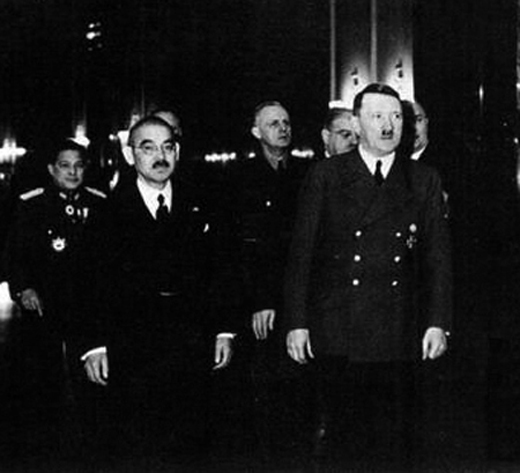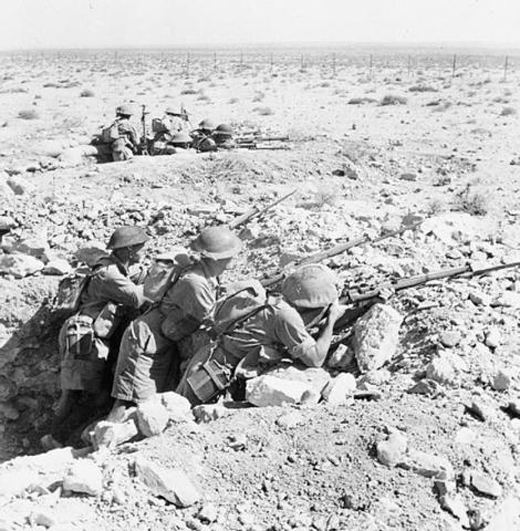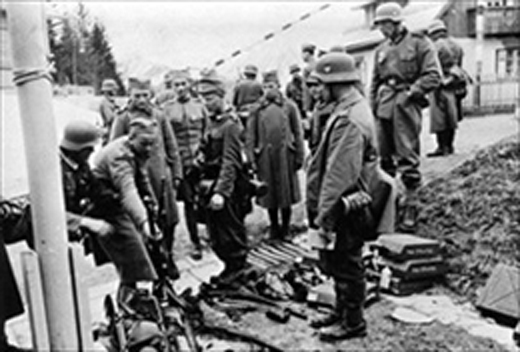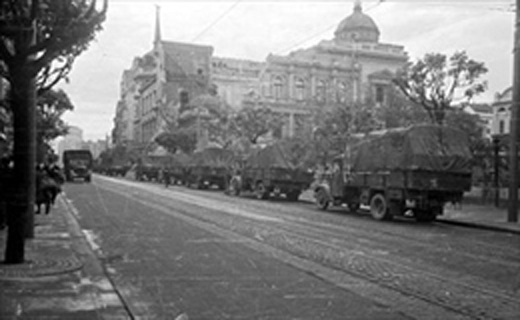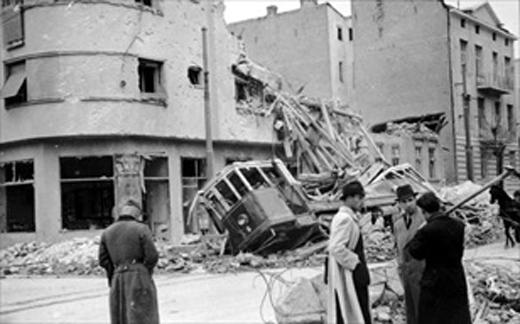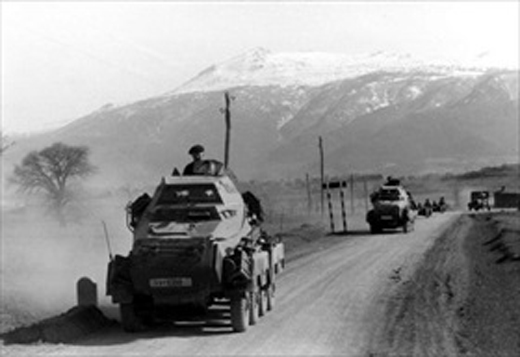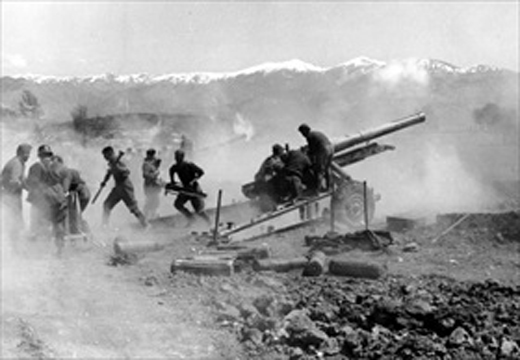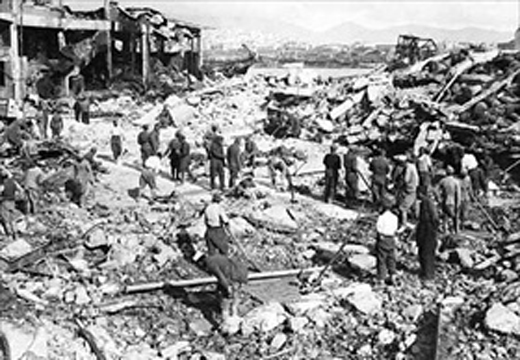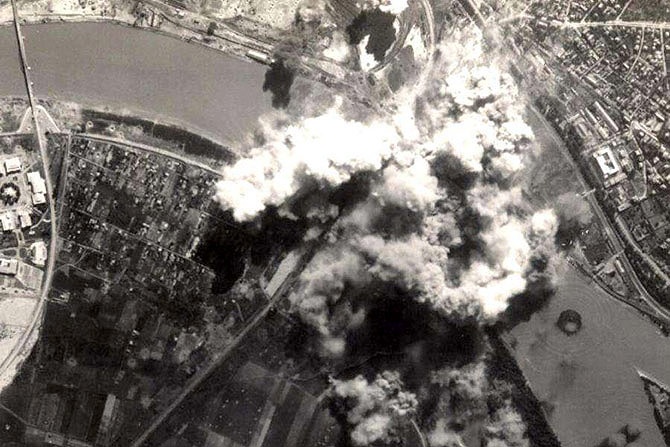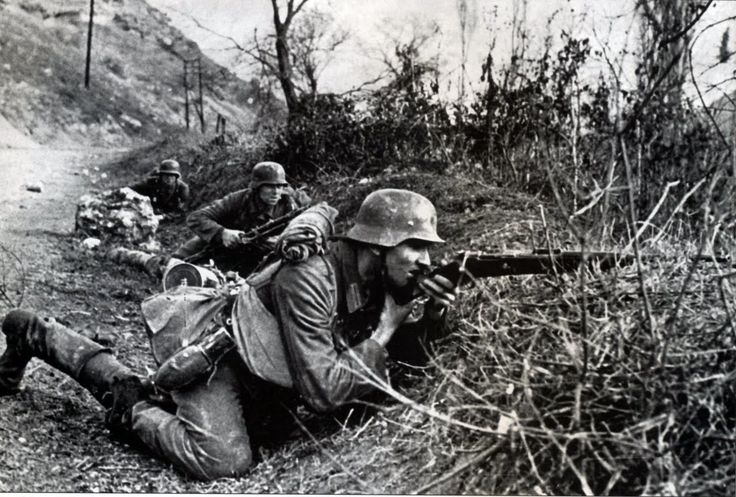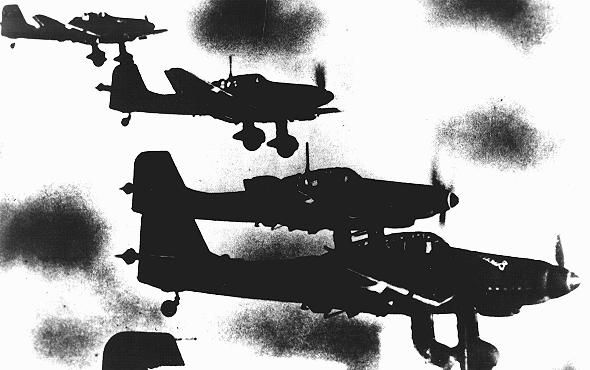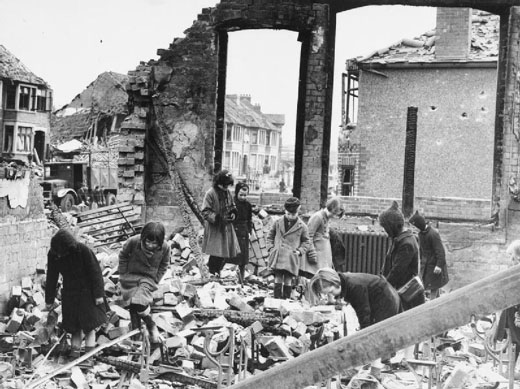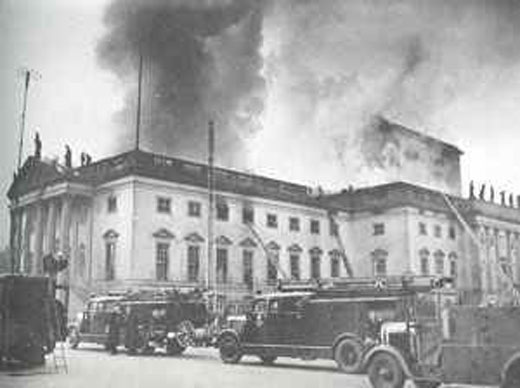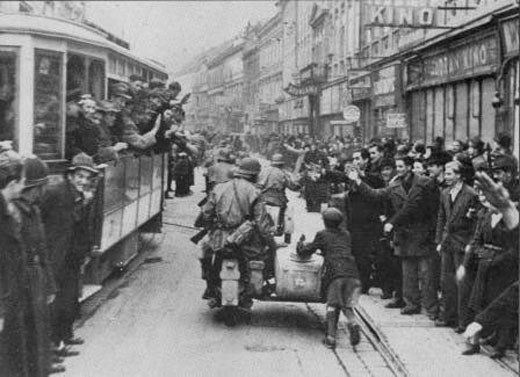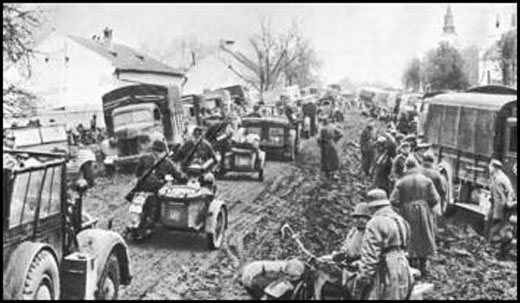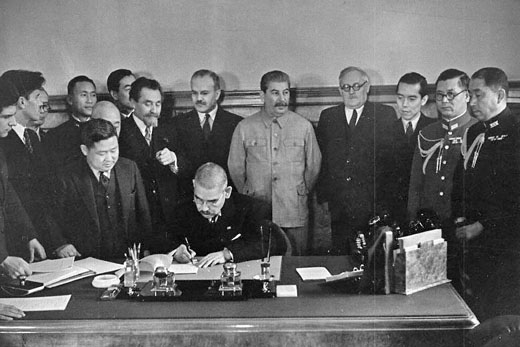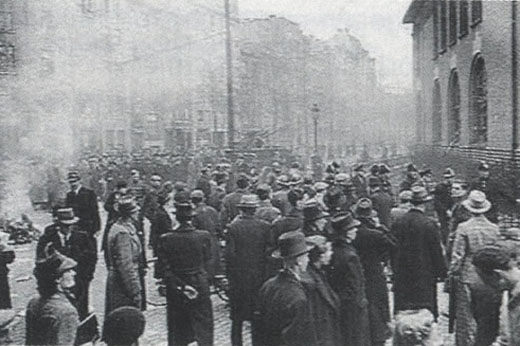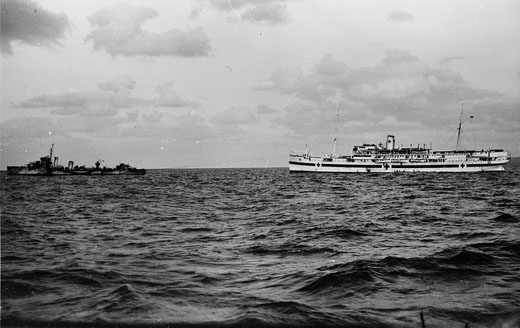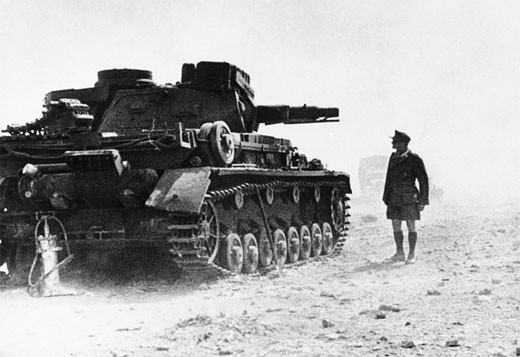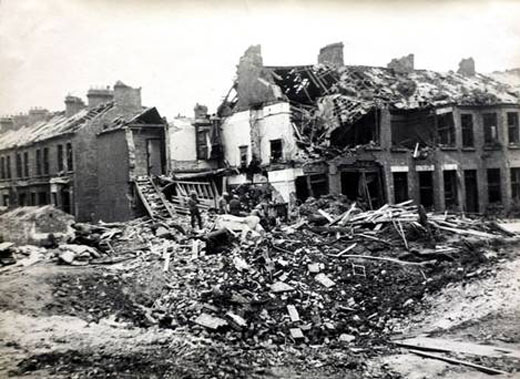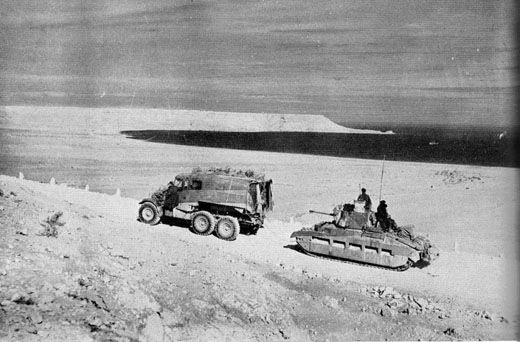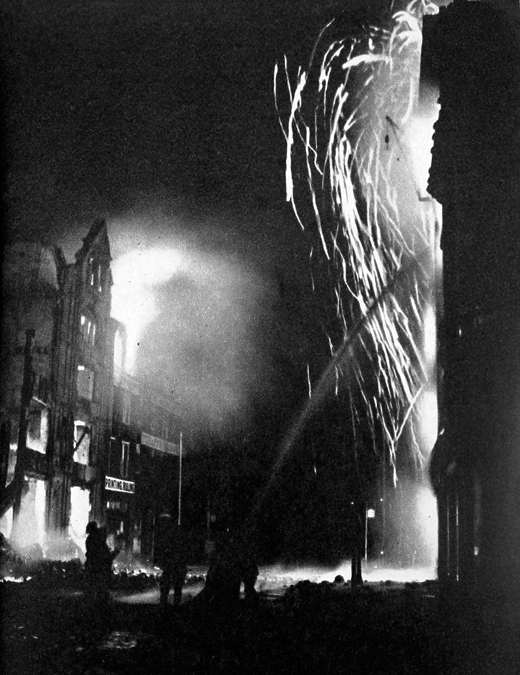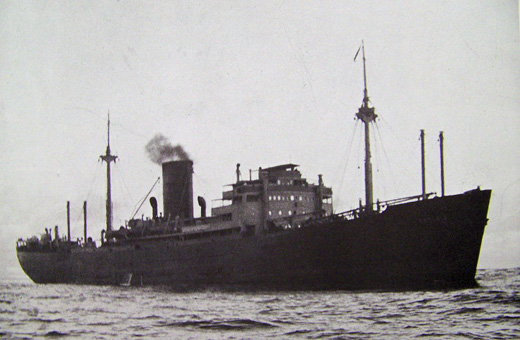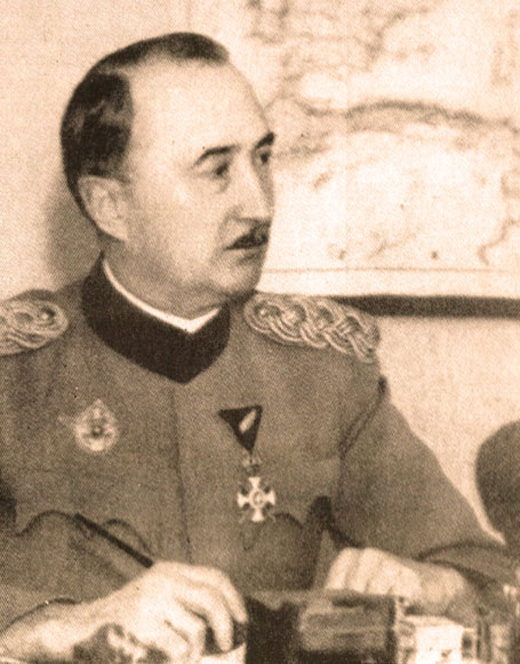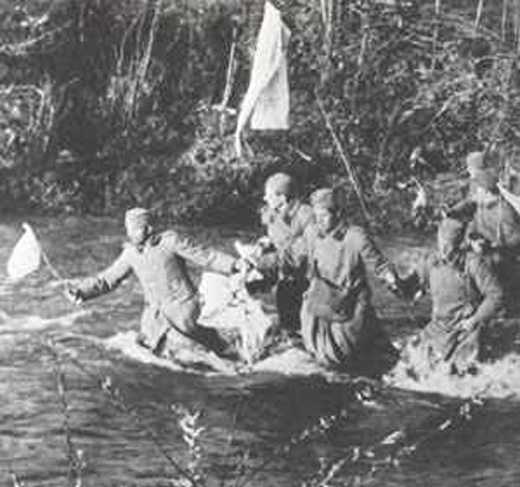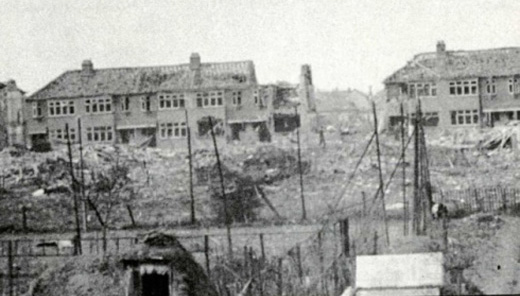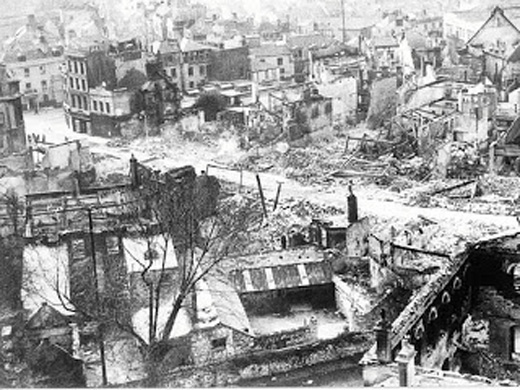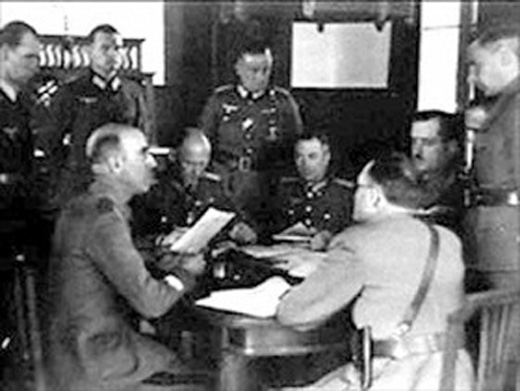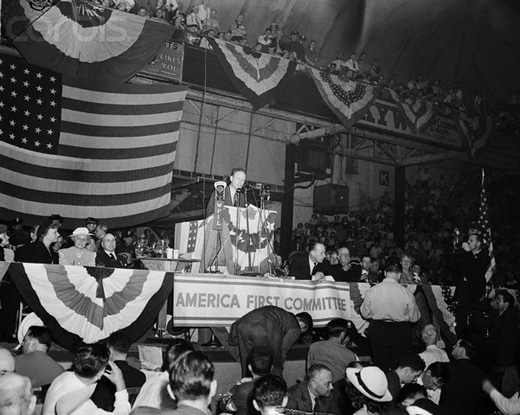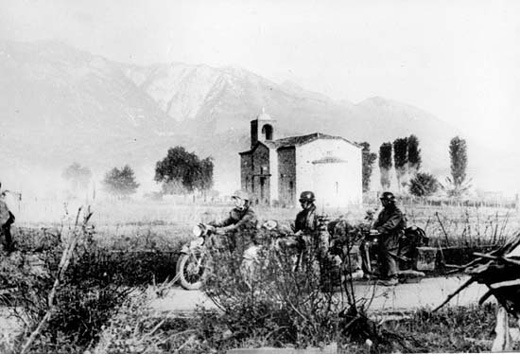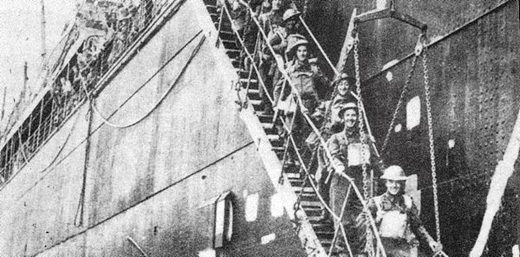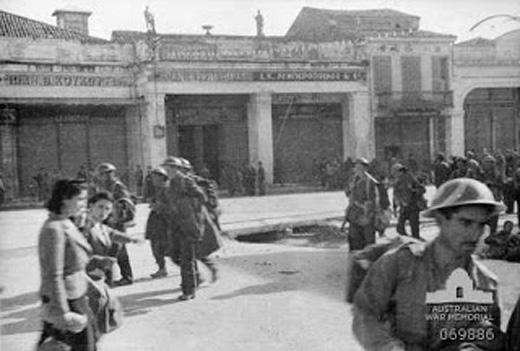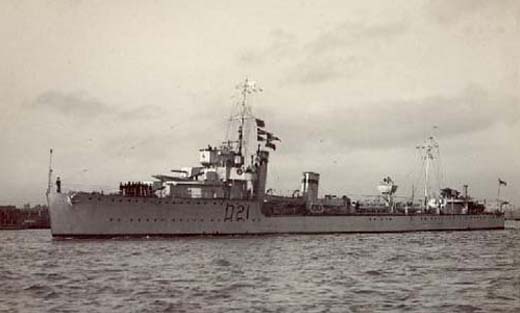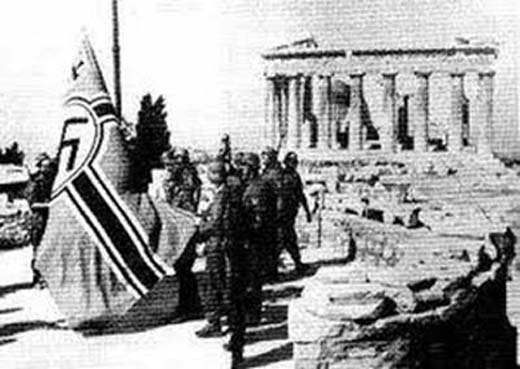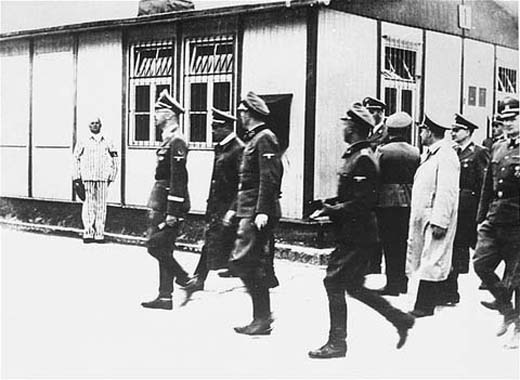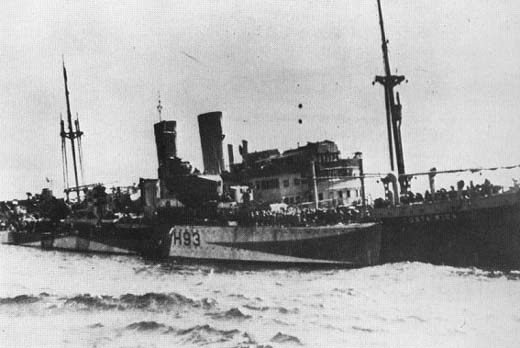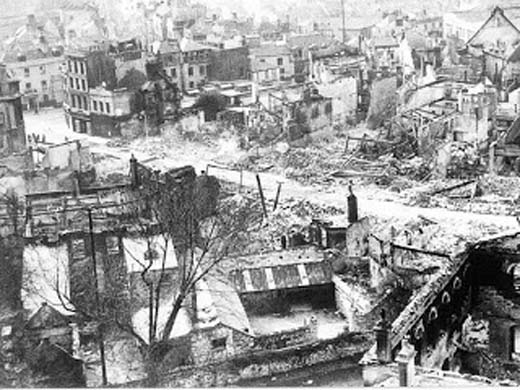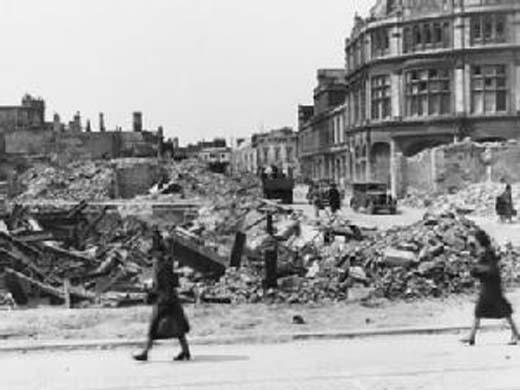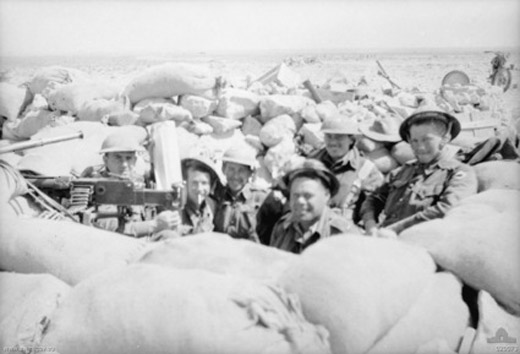Air Operations, Europe
The first 4000-pound bombs are dropped by R.A.F. Wellingtons on Emden, Germany.
[Battle of the Atlantic
In an air attack on Convoy HXM-114 The British tanker San Conrado (7982t) and the Norwegian tanker Hidlefjord (7639t) are bombed and sunk by He-111s in the Bristol Channel.
[Axis Diplomacy
The Japanese Foreign Minister makes an official visit to Rome. He meets separately with King Victor Emmanuel III and with Mussolini. He has come straight from discussions with Hitler and Ribbentrop in Berlin. He tells the king Japan is in complete sympathy with Italy's war aims.
[Iraq, Politics
A coup begins and by 3 April a new government has been installed. The Regent Faisal escapes to Transjordan. The coup is led by the nationalist politician Rashid Ali and a group of pro-German officers calling themselves the 'Brethren of the Golden Square'. They are opposed to the British presence in the country. The British react quickly and soon troops are being sent from India and the Middle East to ensure access to the vital oil supplies.
Italian East Africa
Asmara, the capital of Eritrea, is taken by the men of the 4th and 5th Indian Divs under Gen Platt, who have been advancing into the area from the Sudan since 19 January.
[Japan, Home Front
Rationing of rice begins in Tokyo and other cities.
[Pacific
The German steamer Muenchen (5619t) scuttles herself when intercepted by the Canadian armed merchant cruiser Prince Henry off the coast of Peru. The German steamer Hermonthis (4833t) also scuttles herself when intercepted by the same Canadian ship. Both German ships had left Callao 31 March. Unable to leave port, several other German ships scuttle themselves in western South African ports: Cerigo (1120t) at Guayaquil; Eisenbach (4323t) at Puntarenas; Friesland (6310t) at Paita, Peru; Leipzig (5898t) and Monserrate (5578t) at Callao.
German Freighter Hermonthis Scuttled |
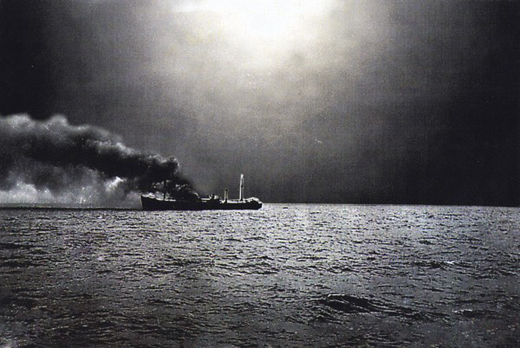 |
North Africa
The British withdraw from Mersa Brega, abandoning almost the only available defensive position before the wide open spaces of the Cyrenaica Plateau.
[Red Sea
The British destroyer Kandahar intercepts the German steamer Bertram Rickmers (4188t) which had left Massawa 29 March. She scuttles herself near Gondurmiat.
[United States, Policy
The director of American naval operations points out that any initiatives taken by the Axis powers generally start on a Saturday or Sunday, and urges the Allies to intensify their security measures on those days.
[Yugoslavia
The Senate is dissolved and a general mobilization is proclaimed. There are already 900,000 men deployed on the country's borders and will now have 1,400,000 men under arms.
[